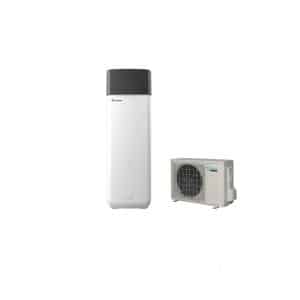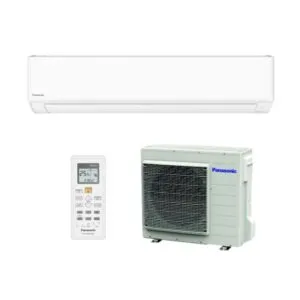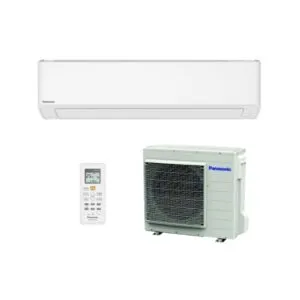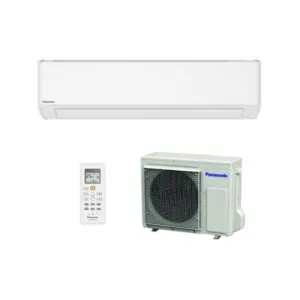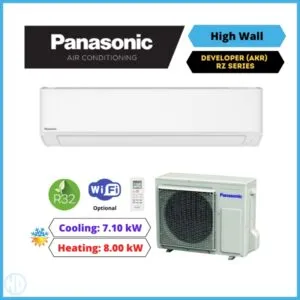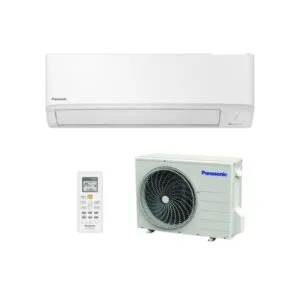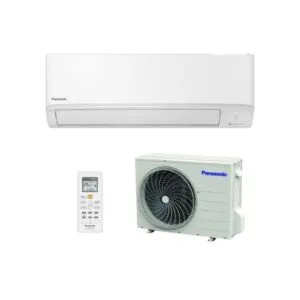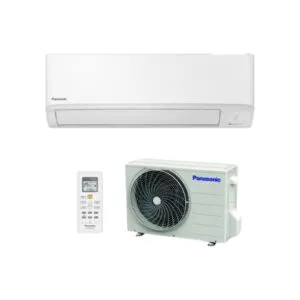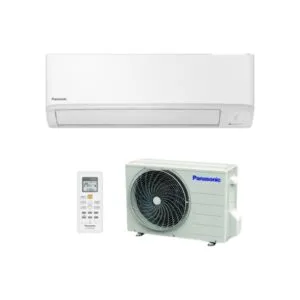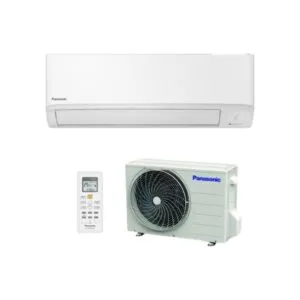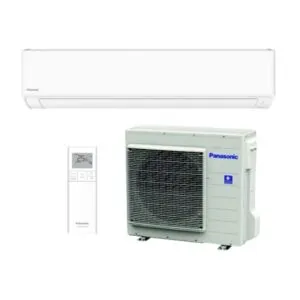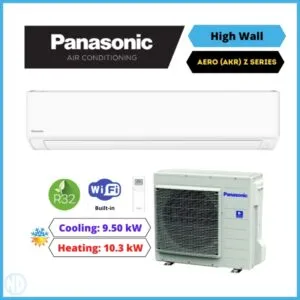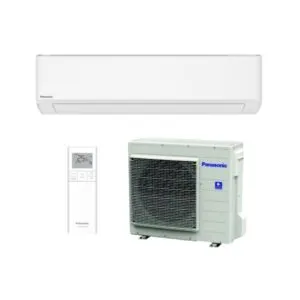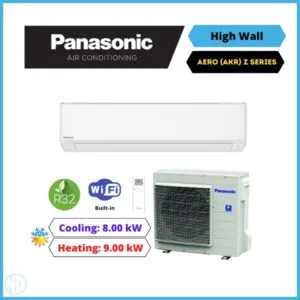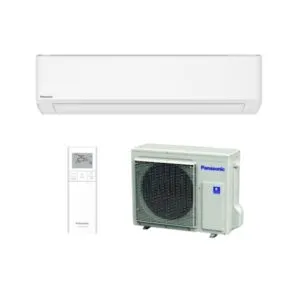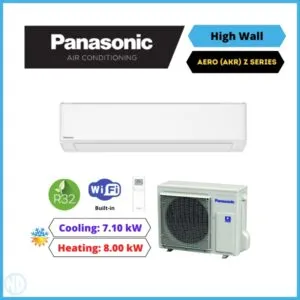No products in the cart.
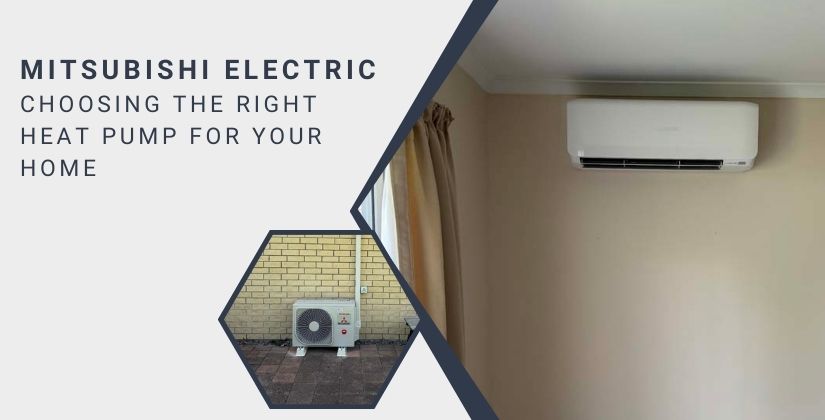
Heat pumps in Auckland offer efficient heating and cooling solutions. They are ideal for maintaining comfortable indoor temperatures year-round.
Heat pumps are increasingly popular in Auckland due to their energy efficiency and versatility. They provide both heating and cooling, making them perfect for Auckland’s fluctuating climate. Homeowners appreciate the cost savings on energy bills and the environmentally friendly nature of heat pumps.
These systems extract heat from the air, ground, or water, ensuring an efficient transfer of energy. Many modern heat pumps also come with advanced features like smart thermostats and remote controls. Installation by certified professionals ensures optimal performance and longevity. For those looking to upgrade their home climate control, heat pumps present a reliable and sustainable option.
What Is A Heat Pump?
Living in Auckland means experiencing a variety of weather conditions. Heat pumps are a smart solution for maintaining a comfortable home environment. But what exactly is a heat pump? A heat pump is an energy-efficient system that provides heating and cooling. It works by transferring heat from one place to another, rather than generating heat directly.
Types Of Heat Pumps
Heat pumps come in different types, each designed to meet specific needs. Let’s explore the main types:
- Air Source Heat Pumps (ASHP): These are the most common types. They extract heat from the outside air and transfer it indoors. They are easy to install and ideal for mild climates.
- Ground Source Heat Pumps (GSHP): Also known as geothermal heat pumps, they use the stable temperature of the ground to provide heating and cooling. These systems are more efficient but require more space for installation.
- Water Source Heat Pumps: These pumps use water bodies like lakes or rivers as a heat source. They are highly efficient but need access to a suitable water source.
- Hybrid Heat Pumps: These combine air source and ground source technologies. They optimize performance by switching between air and ground sources based on the temperature.
Here’s a quick comparison table for better understanding:
| Type | Efficiency | Installation Complexity | Ideal Use |
|---|---|---|---|
| Air Source Heat Pumps (ASHP) | Moderate | Easy | Mild climates |
| Ground Source Heat Pumps (GSHP) | High | Complex | Stable ground temperature |
| Water Source Heat Pumps | Very High | Complex | Near water bodies |
| Hybrid Heat Pumps | High | Moderate | Variable climates |
How They Work
Heat pumps operate by moving heat from one place to another. They don’t create heat like a traditional heater. Instead, they transfer existing heat:
- Heating Mode: In winter, the pump extracts heat from the outside air or ground and moves it indoors. This heat is then distributed through your home.
- Cooling Mode: In summer, the process reverses. The pump extracts heat from inside your home and releases it outside, cooling your home.
Here’s a simple breakdown of the process:
- Evaporation: The refrigerant absorbs heat from the outside air/ground and evaporates into a gas.
- Compression: The gas is compressed, increasing its temperature.
- Condensation: The hot gas passes through a condenser coil, releasing heat into your home and turning back into a liquid.
- Expansion: The liquid refrigerant passes through an expansion valve, cooling down before starting the cycle again.
This efficient cycle allows heat pumps to provide both heating and cooling. They use less energy than traditional systems, making them an eco-friendly choice for Auckland homes.
Benefits Of Heat Pumps
Heat pumps in Auckland are a fantastic way to keep your home comfortable. They are versatile, efficient, and environmentally friendly. Let’s explore the benefits of heat pumps.
Energy Efficiency
Heat pumps are incredibly energy efficient. They transfer heat rather than generate it. This makes them much more efficient than traditional heating systems. Here are some key points:
- Less energy use: Heat pumps use 30-40% less energy compared to conventional systems.
- Year-round efficiency: They provide both heating and cooling.
- Eco-friendly: They produce fewer greenhouse gases.
To understand their efficiency better, check out this table:
| System | Energy Efficiency Ratio (EER) |
|---|---|
| Heat Pump | 3.0 – 5.0 |
| Traditional Heater | 0.8 – 1.5 |
The Energy Efficiency Ratio (EER) of heat pumps is higher. This means they convert more energy into heating or cooling.
Cost Savings
Using heat pumps can lead to significant cost savings. Here’s why:
- Lower energy bills: Their efficiency means you pay less for energy.
- Less maintenance: They have fewer moving parts and break down less often.
- Long lifespan: They can last up to 20 years with proper maintenance.
Consider this cost comparison:
| System | Annual Cost |
|---|---|
| Heat Pump | $500 |
| Traditional Heater | $1000 |
By using a heat pump, you can save around $500 annually on energy bills.
In the long run, heat pumps are a smart investment for both your wallet and the environment.
Heat Pumps In Auckland’s Climate
Heat Pumps in Auckland offer an efficient way to maintain comfort. Auckland’s unique climate requires systems that adapt to varied weather conditions. Heat pumps provide year-round comfort and efficiency, making them perfect for Auckland homes.
Temperature Range
Auckland experiences a mild climate with temperatures ranging from 7°C to 24°C. Heat pumps are ideal for this range because they can both heat and cool effectively. Here’s a breakdown of Auckland’s temperature range:
- Winter (June to August): Average lows are around 7°C to 10°C.
- Summer (December to February): Average highs are between 20°C to 24°C.
- Spring and Autumn: Temperatures are usually mild, ranging from 12°C to 20°C.
This moderate temperature range allows heat pumps to operate efficiently without extreme strain. They can quickly adjust to the mild fluctuations, maintaining a comfortable indoor environment.
Seasonal Performance
Heat pumps perform exceptionally well throughout the year in Auckland. During winter, they efficiently heat homes by extracting warmth from the outside air, even at temperatures as low as 7°C. In summer, they reverse the process, cooling homes by expelling warm air outside.
Here is a table showcasing the seasonal performance of heat pumps in Auckland:
| Season | Performance |
|---|---|
| Winter | Efficiently heats homes, even at low temperatures |
| Summer | Effectively cools homes, maintaining a comfortable indoor climate |
| Spring | Adapts to mild temperature changes, providing consistent comfort |
| Autumn | Maintains a stable indoor temperature, despite outdoor fluctuations |
Heat pumps offer flexibility and efficiency across seasons, making them a valuable addition to Auckland homes. Their ability to switch between heating and cooling ensures year-round comfort, regardless of the weather outside.
Installation Process
Heat pumps in Auckland are becoming increasingly popular for their efficiency and eco-friendliness. The installation process is crucial to ensure optimal performance and longevity of your heat pump. Here, we break down the installation process into key steps to help you understand what to expect.
Site Assessment
A thorough site assessment is the first step in the installation process. This step involves evaluating your home or business to determine the best location for the heat pump. The assessment usually covers:
- Space Availability: Ensuring there is enough room for both the indoor and outdoor units.
- Electrical Requirements: Checking if your current electrical system can support the new heat pump.
- Insulation Quality: Assessing the insulation of your building to maximize efficiency.
- Climate Considerations: Understanding the local climate to choose the most suitable type of heat pump.
The technician will also measure the area and possibly draw up a schematic layout. This helps in planning the exact placement and routing of pipes and wires. Proper site assessment ensures the heat pump operates efficiently and effectively.
Choosing The Right Model
Choosing the right model is critical for the efficiency and comfort of your home. Factors to consider include:
- Size of Your Space: Larger areas need more powerful models.
- Energy Efficiency: Look for models with high SEER ratings.
- Budget: Balance between initial cost and long-term savings.
- Brand Reputation: Opt for well-known brands with good reviews.
- Features: Consider features like smart controls and noise levels.
Consulting with a professional can help you navigate these choices. They can recommend models based on your specific needs and preferences. Below is a table summarizing key aspects to consider:
| Aspect | Details |
|---|---|
| Size | Match with the area size |
| Efficiency | High SEER ratings |
| Budget | Initial cost vs. long-term savings |
| Brand | Reputable and well-reviewed |
| Features | Smart controls, noise levels |
By taking the time to choose the right model, you ensure your heat pump will meet your needs and provide comfort for years to come.
Maintenance Tips
Heat pumps in Auckland are essential for maintaining comfort in your home. They provide efficient heating and cooling solutions, but they require regular maintenance to function optimally. Proper upkeep not only extends the lifespan of your heat pump but also ensures it operates efficiently, saving you energy and money. Below are some maintenance tips to keep your heat pump in top condition.
Regular Checks
Regular checks are crucial for the longevity and efficiency of your heat pump. Performing these checks can help identify potential issues early on, preventing costly repairs later.
- Inspect the Filters: Check the filters every month. Dirty filters can obstruct airflow, making the heat pump work harder. Clean or replace them as needed.
- Examine the Outdoor Unit: Ensure the outdoor unit is free from debris. Leaves, dirt, and other obstructions can affect performance. Clean the area around the unit regularly.
- Check Thermostat Settings: Make sure the thermostat settings are correct. An incorrect setting can lead to inefficient heating or cooling.
Here’s a quick checklist for your regular maintenance:
| Check | Frequency |
|---|---|
| Filters | Monthly |
| Outdoor Unit | Monthly |
| Thermostat | Quarterly |
Common Issues
Even with regular maintenance, heat pumps can encounter common issues. Recognizing these problems early can help you address them before they escalate.
- Low Refrigerant Levels: Insufficient refrigerant can cause the heat pump to struggle in maintaining the desired temperature. If you notice this issue, contact a professional to check for leaks and refill the refrigerant.
- Strange Noises: Unusual sounds like grinding or squealing can indicate mechanical issues. These noises often mean that parts are worn out or need lubrication.
- Inefficient Heating or Cooling: If your heat pump isn’t heating or cooling efficiently, it might be due to dirty coils, blocked ducts, or a malfunctioning thermostat.
Here’s a summary of common issues and their potential solutions:
| Issue | Potential Solution |
|---|---|
| Low Refrigerant | Check for leaks, refill refrigerant |
| Strange Noises | Inspect mechanical parts, lubricate if needed |
| Inefficient Heating/Cooling | Clean coils, unblock ducts, check thermostat |
Choosing The Right Installer
Heat pumps are becoming increasingly popular in Auckland due to their energy efficiency and ability to provide year-round comfort. Choosing the right installer is crucial for ensuring your heat pump operates effectively. A skilled installer can make a significant difference in performance, longevity, and energy savings. This guide will help you identify key qualifications and essential questions to ask potential installers.
Qualifications To Look For
When selecting an installer for your heat pump in Auckland, it’s important to check their qualifications. Proper certification and training ensure the installer is knowledgeable and capable. Here are some key qualifications to look for:
- Certification: Ensure the installer is certified by recognized industry bodies, such as the Refrigeration and Air Conditioning Contractors Association (RACCA) or the Heating, Ventilation, and Air Conditioning (HVAC) certification.
- Experience: Look for installers with at least five years of experience in heat pump installations. Experienced installers are more likely to handle unexpected issues efficiently.
- Licensing: Verify that the installer has the necessary licenses to operate in Auckland. This ensures they comply with local regulations and standards.
- Insurance: Check if the installer has liability insurance. This protects you in case of accidents or damage during installation.
In addition to these qualifications, consider checking online reviews and testimonials. Positive feedback from previous clients can provide insights into the installer’s reliability and quality of work.
Questions To Ask
Asking the right questions can help you gauge the installer’s expertise and ensure they are the right fit for your project. Here are some essential questions to consider:
- What experience do you have with installing heat pumps? This question helps you understand the installer’s background and expertise with heat pumps specifically.
- Can you provide references from previous clients? References offer a way to verify the quality of their work and customer satisfaction.
- What brands of heat pumps do you recommend and why? This question helps you assess their knowledge of different brands and their suitability for your needs.
- What is your process for installation? Understanding their process can give you insights into how thorough and organized the installer is.
- Do you offer any warranties or guarantees on your work? Warranties provide peace of mind and ensure that the installer stands behind their work.
These questions not only help you evaluate the installer’s competence but also build a clear understanding of what to expect throughout the installation process.
Local Regulations
Heat Pumps Auckland offer efficient heating and cooling solutions for homes and businesses. Understanding the local regulations is crucial for a smooth installation process. This ensures that your heat pump system complies with Auckland’s rules and standards.
Permits Required
Installing a heat pump in Auckland may require various permits. Knowing what permits are needed can save time and avoid legal issues. Here are some important points to consider:
- Building Consent: A building consent ensures that the installation meets safety and structural requirements.
- Resource Consent: This may be needed if your property is in a specific zone or has heritage status.
- Electrical Work: A licensed electrician must handle the electrical aspects of the installation.
Failure to obtain these permits can result in fines and delays. Always check with the Auckland Council before starting the installation. Below is a table summarizing the permits needed:
| Permit Type | Purpose | Required For |
|---|---|---|
| Building Consent | Ensures safety and structural integrity | All installations |
| Resource Consent | Special zoning or heritage areas | Specific properties |
| Electrical Work | Compliance with electrical codes | All installations |
Compliance Standards
Meeting the compliance standards is essential for installing heat pumps in Auckland. These standards ensure safety, efficiency, and environmental protection. Here are key compliance areas:
- Energy Efficiency: Heat pumps must meet minimum energy efficiency ratings. This helps reduce energy consumption and lower utility bills.
- Environmental Impact: Compliance with environmental regulations ensures that the heat pump does not harm the environment.
- Safety Standards: The installation must comply with safety standards to prevent accidents and ensure the well-being of occupants.
Heat pumps must also comply with national standards, such as those set by the Ministry of Business, Innovation, and Employment (MBIE). Below is a table outlining key compliance standards:
| Standard | Purpose | Responsible Body |
|---|---|---|
| Energy Efficiency | Reduce energy consumption | MBIE |
| Environmental Regulations | Protect the environment | Auckland Council |
| Safety Standards | Ensure occupant safety | MBIE |
Ensuring compliance with these standards guarantees a safe, efficient, and environmentally friendly heat pump installation.
Future Trends
Heat pumps in Auckland are becoming increasingly popular. These systems offer efficient heating and cooling solutions. As demand grows, new trends are emerging in the industry. These trends are shaping the future of heat pumps in Auckland.
Technological Innovations
Technological innovations are driving the heat pump market forward. New advancements are making heat pumps more efficient and user-friendly. Here are some key innovations:
- Smart Controls: Modern heat pumps come with smart controls. These allow users to manage their systems remotely using a smartphone. This feature enhances convenience and energy efficiency.
- Energy Efficiency: New models are designed to use less energy. This reduces electricity bills and environmental impact. Improved efficiency is a big selling point for eco-conscious consumers.
- Quiet Operation: Advances in technology have made heat pumps quieter. Noise reduction is a crucial factor for many buyers. Modern units operate almost silently.
Below is a table summarizing these innovations:
| Innovation | Benefit |
|---|---|
| Smart Controls | Remote management, enhanced convenience |
| Energy Efficiency | Lower bills, reduced environmental impact |
| Quiet Operation | Less noise pollution, quieter home environment |
Market Growth In Auckland
The heat pump market in Auckland is expanding rapidly. Several factors contribute to this growth:
- Increasing Awareness: More people are learning about the benefits of heat pumps. Awareness drives demand as consumers seek efficient heating and cooling solutions.
- Government Incentives: Local authorities are offering incentives for energy-efficient systems. These incentives make heat pumps more affordable for residents.
- Rising Energy Costs: As energy costs rise, people look for ways to save. Heat pumps offer a cost-effective solution, leading to higher adoption rates.
The following table outlines these growth factors:
| Factor | Impact on Market Growth |
|---|---|
| Increasing Awareness | Higher demand for heat pumps |
| Government Incentives | More affordable options for consumers |
| Rising Energy Costs | Increased adoption of energy-efficient solutions |
Overall, these trends indicate a promising future for heat pumps in Auckland. With continuous technological advancements and market growth, heat pumps are set to become a staple in many homes.
Frequently Asked Questions
What Are The Benefits Of Heat Pumps?
Heat pumps provide efficient heating and cooling. They reduce energy costs and are environmentally friendly. They also improve indoor air quality.
How Do Heat Pumps Work?
Heat pumps transfer heat from one place to another. They use electricity to move heat, not generate it. This makes them efficient.
Are Heat Pumps Suitable For Auckland's Climate?
Yes, heat pumps are ideal for Auckland. They efficiently handle mild winters and moderate summers. They provide year-round comfort.
What Is The Cost Of Installing A Heat Pump?
The cost varies based on the model and installation complexity. On average, it ranges from $3,000 to $7,000.
Conclusion
Choosing the right heat pump in Auckland can save you money and enhance comfort. Invest in quality and enjoy efficient heating and cooling year-round. Make informed decisions by considering expert advice and customer reviews. Optimize energy use and boost home value with the best heat pump for your needs.
Remember, NZ Depot is your trusted provider of high-quality heat pumps in New Zealand. Explore our wide selection of heat pumps to find the perfect fit for your home, link to NZ Depot heat pumps.
Not sure which heat pump is right for you?
Get a free, no-obligation quote from our expert team today!
- $6,486.00
$9,800.00Daikin Hot Water Heat Pump ALTHERMA SYSTEMS – EKHHP300AC-02AA
$6,486.00$9,800.00 - $3,529.99
$8,000.00Incl GSTPanasonic 9.5kW AERO Kit System Z Series (AKR) Wall Mounted Split System Air Conditioner CS-Z95AKR CU-Z95AKR
$3,529.99$8,000.00Incl GST - $2,919.99
$6,000.00Incl GSTPanasonic 8.0kW AERO Kit System Z Series (AKR) Wall Mounted Split System Air Conditioner CS-Z80YKR CU-Z80YKR
$2,919.99$6,000.00Incl GST - $2,549.99
$5,500.00Incl GSTPanasonic 7.1kW AERO Kit System Z Series (AKR) Wall Mounted Split System Air Conditioner CS-Z71AKRW CU-Z71AKR
$2,549.99$5,500.00Incl GST


